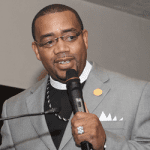The Adventurous Lectionary – Palm Sunday – April 2, 2023
Isaiah 50:4-92
Psalm 118:1-2, 19-29
Philippians 2:5-11
Matthew 21:1-11
Matthew 26:14-27:66
THE SPIRITUAL ROLLER COASTER OF HOLY WEEK. Let the tragic beauty, and creative conflict of Holy Week begin! To those who take worship and study seriously, Holy Week is a spiritual rollercoaster. Putting ourselves in the place of the women and men who followed Jesus, we experience joyful celebration, uncertainty and anxiety, desperation, fear, and depression. We have no idea what the outcome will be. We have to walk through the valley of darkness, our own and the world’s, to get to celebrate the resurrection.
Though often at slow motion, our lives are also a rollercoaster. If we expand Holy Week to include the political, we can identify with the chaos of Holy Week in its unsettledness and possibility.
Palm Sunday straddles celebration and suffering. The crowds that shout “Hosanna” in great celebration soon will fade in the background to be replaced by “Crucify him.” Life is joy and celebration; it is also sorrow and grief, and a holistic faith must embrace both. The week goes through the Kubler-Ross’ first four stages – denial, anger, bargaining, and depression – with acceptance and celebrating awaiting on Easter.
BEGINNING WITH HOSANNAS. We will begin with joy. No passion readings till the very end of the service; just celebration with a hint of what is to come later in the week with the final hymn, “Were You There?” and a selection of the passion readings. The power of celebration during Holy Week has been underestimated. We need the waving palms, the “hosanna” shouts, and the joyful crowd to revive our spirits to warm our wintry and isolated spirits here in New England. In the tragic beauty of life, we will experience plenty of grief – the ambiguous Last Supper, the surprising betrayal, the violent cross, and the liminal uncertainty of Holy Saturday – before we experience the Joyful Resurrection of Jesus and ourselves. But we need a sense of enduring joy to get us through the week and life’s most difficult moments.
“This is the day that God has made, let us rejoice and be glad in it” bursts forth from Psalm 118. Let’s sing, dance, and celebrate. God’s love endures forever. God gives us light and invites us to a festival of praise. With threat on the horizon, we can still dance, make music, and celebrate the Spirit that gives life. Each day, we mortals can claim abundant life despite threat.
Today is God’s Holy Here and Now. Unrepeatable. An invitation to live joyfully, adventurously, courageously, and prayerfully. This is the time of our life and God’s time in our lives. Let us know waste it. Let us use it for good and God.
We can celebrate because of God’s universal and intimate love. We can have the mind of Christ, but the Christ we celebrate is different from the rulers of the earth. Christ is no ruthless and domineering Caesar but a loving companion. He does not bully, tweet, name call, or bloviate. He rules from among us, embracing our mortality, feeling our pain, and rejoicing in our success. The “kenotic” (self-emptying) Christ is the celebrating Christ, living through every season of life. Christ is one of us and in his solidarity, we are healed and saved. Power is not unilateral, whether divine or human, but relational. Jesus saves us through solidarity not sovereignty. Every knee bows – yes, every knee! – in universal praise.
Wherever there is suffering, Jesus is there. Wherever there is grief, Jesus is there. Wherever there is pain, Jesus is there. This is the mind of Christ, inspiring our own sacrificial living in the time of pandemic.
THE POWER OF SUFFERING. There is an implicit universalism in the Philippians passage: Paul’s readers would have contrasted the power of Caesar and the power of Christ. We bow to Caesar out of fear and threat of punishment: we bow to Christ out of love. Even those who turned away from Christ’s message are brought into the assembly, praising God for God’s amazing, embodied love in Jesus the Christ. God’s power in Christ is the tender care that nothing is lost that can be saved (Alfred North Whitehead) and the poetry that transforms our mourning into dancing and a cross into creative transformation. Suffering, as Holy Week witnesses, is universal, but so is salvation and creative transformation. (For more on process theology, see Bruce Epperly, Process Theology: Embracing Adventure with God and Process Theology: A Guide for the Perplexed.)
The Palm Sunday Gospel reading reflects the triumph of another kind of power. No Roman legion, but a humble teacher on a donkey, symbol of peace and reconciliation. Caught up in the moment, the crowd can’t fully understand the countercultural spectacle they are witnessing. The crowd witnesses a God who has no enemies, makes no threats, destroys no cities, and damns no unbelievers. Such an amazing approach to life – and to understanding God – is too much for them to imagine. Indeed, it is impossible, and sadly many who witness Jesus’ joyful entry into Jerusalem may turn from adulation to abandonment, letting fear rather than love rule their hearts. Still, we can affirm “What Wondrous Love Is This” as testimony to love that embraces friend and enemy and citizen and stranger.
WHAT IF LOVE WON THE DAY? But, what would have happened if love won the day? What would have happened if the people rose up in love rather than fear? What would have happened if the leaders embraced wonder rather than worry, and embraced a new spiritual vision, rather dead institutional power? We will never know, because neither they nor we have ever tried to live out the radical vision of a resurrection that does not require death! What would happen to the church if it chose love over power and challenged the powers and principalities to care for the least of these, first, and place planetary well-being and unborn generations ahead of short-term profits? This is a different kind of resurrection that restores us with every breath and every action, energizing us to be born anew each moment of the day. What will happen if we embody the mind of Christ in a time of pandemic?
FROM PALMS TO PASSION AND PRAISE. But, there is a cross and an uncertain future on the horizon, hidden momentarily by hosannas. Still, Palm Sunday is the prelude: it anticipates tragedy enacted by governmental and religious leaders and another kind of celebration, the resurrection of the Crucified One and an Empty Tomb and an Open Future.
The passion readings are graphic portrayals of religious and political abuse. They are not calls to anti-Judaism, and should not be read in a way that places the guilt on Jewish people, then and now. We can’t avoid the Temple complicity. But, when we denounce the Temple priests, we had best look in the mirror at our own complicity, and if we perceive any kind of Christian unity, strive to challenge and heal the violence perpetrated then and now by Christians: racism, sexism, homophobia, xenophobia, crusades, and persecution. The Christ of Philippians 2 challenges all religious power plays. Our protests and politics must be motivated by love and reconciliation, they must be guided by the power of love not the love of power.
So, shout “hosanna.” Don’t let your Hallelujahs be muted, but full bodied. Christ is alive and invites us to sing songs of praise even the tragic beauty of our own lives and national context.
In the spirit of one of the more recently-written verses ofthe hymn “How Can We Keep from Singing,” we can still hear the echoes of Palm Sunday throughout the conflicts and tragedies of Holy Week.
When tyrants tremble, sick with fear,
And hear their death-knell ringing,
When friends rejoice both far and near,
How can I keep from singing?
In prison cell and dungeon vile,
Our thoughts to them go winging;
When friends by shame are undefiled,
How can I keep from singing?
So, hold onto your palms, but prepare for a rough ride until we sing “Christ the Lord is Risen Today.”
+++
















